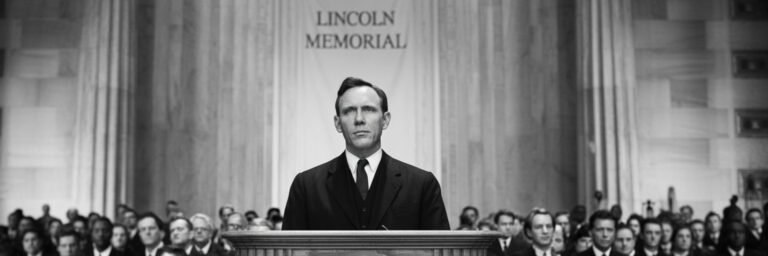INTRODUCTION
Exploration and discovery have been at the heart of human history, propelled by an innate curiosity and desire that has driven us to every corner of the globe. These moments have birthed memorable speeches and quotes that distilled the essence of these triumphant moments in human journey. People like Christopher Columbus, Ferdinand Magellan, Robert Falcon Scott, Sir Edmund Hillary and countless others have marked history with their exploits. Their words spoke of courage, resolve and the unquenchable human thirst for knowledge. This article aims to highlight some of these key oratories and quotes, tracing their history and cultural significance, and investigating the mysteries and controversies that have emerged around them over the centuries.
HISTORICAL BACKGROUND
To begin, we must delve into the archived pages of human history, to a time when the world was yet to be fully charted. The age of exploration and discovery, beginning in the 15th century and stretching into the 18th century, was a period where brave adventurers set sail, driven by economic, political, and above all, intellectual curiosity. Consider Christopher Columbus, whose famous quote, “Upon an unknown sea, I have reached an unknown shore,” captures the spirit of the age.
Similarly, consider the words of Ferdinand Magellan, whose historic circumnavigation of the Earth, though completed only by his crew, became the symbolic end of the Middle Ages and the start of the Modern era. He is quoted saying, “To conquer without risk is to triumph without glory.” For explorers like Magellan, the reward was not in the safety of the journey, but in overcoming ominous odds to achieve hitherto unthinkable feats.
THEORIES AND INTERPRETATIONS
The exploration quotes and speeches are often a treasure trove for academics, offering glimpses into both the personal motivations of the explorers and the broader cultural context of their times. Many scholars have interpreted Columbus’s quote to be a metaphor for the audacity of exploration itself, depicting man’s determination to rise above the fear of the unknown and venture into uncharted territories.
Magellan’s quote, too, has been interpreted as a critique of the culture of safety-first, hinting against complacency and caution. Some argue it reveals his personal disdain for a world immobilized by fear, and his recognition of the immense value of risk-taking in human progression. However, alternative theories dispute these romanticized interpretations, asserting that these quotes were more reflective of their personal ambitions and pursuit of immortality.
MYSTERIES AND CONTROVERSIES
While these quotes have come to symbolize the spirit of exploration—they are not without their controversies. Some historical accounts question the authenticity of these quotes, arguing they were invented or embellished by later writers. The profound words ascribed to Columbus, for instance, do not appear in his original diaries. Some blame this on translation inconsistencies, while others attribute it to the tendency of historians to mythologize their heroes.
The same skepticism equally plagues the quote of Magellan. Given the lack of comprehensive documentation during his expedition, it is challenging to verify such spoken words. This absence of definitive proof has spurred spirited debate among historians, lending an air of mystery to these famous quotes that extend beyond their narrative potency.
SYMBOLISM AND CULTURAL SIGNIFICANCE
Regardless of their veracity, these quotes hold immense cultural significance, serving as guiding principles in various facets of human endeavor. Columbus’s statement has come to symbolize resilience in the face of adversity, inspiring generations of explorers. Similarly, Magellan’s philosophy of risk and triumph has found resonance in disciplines as diverse as entrepreneurship and high-risk sports.
These quotes have been utilized as motivational catalysts, adorning books, banners, and even mission statements of various enterprises. They epitomize the human spirit that yearns to push boundaries, to uncover the mysteries of our world, and to advance our collective knowledge.
MODERN INVESTIGATIONS
The controversies surrounding these famous quotes continue to intrigue modern historians. Digitization of centuries-old archives has provided new tools to dissect and deconstruct the origins and authenticity of these words. Linguistic experts have often been called upon to decipher the subtleties and nuances embedded in these quotes’ original languages, yielding varying interpretations.
Beyond the linguistic and historical authenticity, psychological experts today investigate what these words can tell us about the leaders’ mindset. Modern explorers who dare to venture into the depths of the ocean or outer space often quote these timeless aphorisms, perhaps underscoring the universal human longing for discovery fostered by these historical quotes.
LEGACY AND CONCLUSION
The exploration quotes and speeches have left an indelible mark on our cultural consciousness. Regardless of the mysteries and controversies surrounding their origin, their enduring influence cannot be denied. They remind us that the journey into the unknown, despite its inherent risks, remains a defining element of the human experience.
In conclusion, our understanding of these famous quotes and speeches is multifaceted—imbued with symbolism, shrouded in mystery, yet powerfully inspirational. Whether used by adventurers charting a perilous course, business leaders pursuing innovative risks, or academics fostering intellectual curiosity, they echo the spirit of exploration and discovery that lies at the heart of our shared history. Through these words, we celebrate the audacity of those who dared to journey to the ends of the Earth, to venture into the unknown’s veil, and to make manifest our unending quest for knowledge and understanding. As we continue to investigate their origins, interpret their meanings, and appreciate their cultural significance, their timeless echo reminds us that, in the end, it is not the destination but the journey that truly matters.






